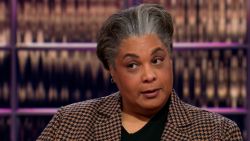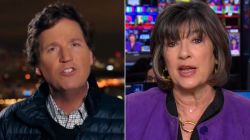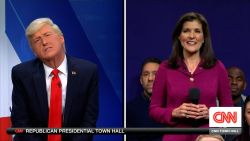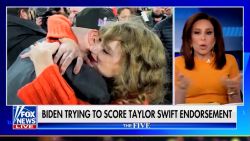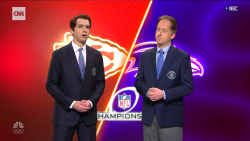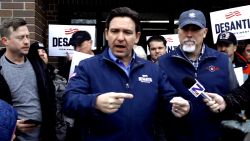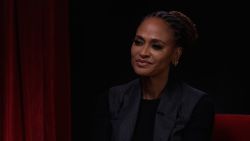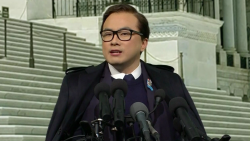CNN’s lawsuit against President Trump and several top aides is specifically about Jim Acosta’s access to the White House, but the case could have repercussions far beyond CNN.
“This is a very, very important case,” said famed lawyer Ted Olson, who is representing CNN. It was Acosta whose press pass was suspended this time, but “this could happen to any journalist by any politician,” Olson said.
The judge assigned to the case has scheduled a hearing for Wednesday at 3:30 p.m.
Here’s everything you know about CNN v. Trump…
Is Acosta still banned?
Yes. He found out his Secret Service “hard pass,” which speeds up entry and exit from the White House, was being suspended on Wednesday, November 7. The next day, he was also denied a “day pass” to enter the White House. And over the weekend he was turned away from a presidential event marking the end of World War I in France.
What does CNN want?
The lawsuit alleges that Acosta and CNN’s First and Fifth Amendment rights are being violated by the ban. Lawyers are asking a judge for “immediate restoration of Acosta’s press credentials and hard pass,” plus a declaration that the administration’s action was “unconstitutional, in violation of the First Amendment and the Due Process Clause of the Fifth Amendment.”
What is the White House’s position?
Press Secretary Sarah Sanders, one of the six defendants in the case, said Tuesday that “this is just more grandstanding from CNN, and we will vigorously defend against this lawsuit.” Sanders criticized Acosta for, she said, acting unprofessionally and hogging the mic at a press conference last week. But she did not address the legal issues raised by CNN’s lawsuit.
What happened at that press conference?
Acosta is one of the most aggressive reporters on the Trump beat, winning him fans as well as critics. Trump called on him during a November 7 press conference. The two men went back-and-forth over Trump’s immigration rhetoric, and then Acosta tried to change topics and ask a third question about Special Counsel Robert Mueller’s investigation. When the president called on another reporter, a White House intern reached for the microphone Acosta was holding, but Acosta refused to immediately hand it over. He asked his intended question, then gave the mic to the intern.
What did the White House originally claim?
In a statement announcing the suspension of Acosta’s press pass, Sanders said the administration will “never tolerate a reporter placing his hands on a young woman just trying to do her job as a White House intern.” But video of the event showed that Acosta did not mistreat the intern. He even said “pardon me, ma’am” when she reached for the mic.
To support her rationale, Sanders tweeted a distorted video clip of the press conference that didn’t show the complete back-and-forth. The same video had been posted by an InfoWars personality two hours earlier. InfoWars is a fringe right-wing media company with a history of posting hateful content and conspiracy theories.
Two days later, Trump himself cast doubt on Sanders’ rationale: He said Acosta was “not nice to that young woman,” but “I don’t hold him for that because it wasn’t overly, you know, horrible.” Then he complained about Acosta’s behavior more generally.
How has the White House’s rationale shifted?
Sanders is no longer claiming that Acosta placed his hands on the intern. Her Tuesday statement said he “physically refused to surrender” the mic. Of course, reporters frequently try to ask follow-up questions at press events.
Sanders went on to say that “this was not the first time this reporter has inappropriately refused to yield to other reporters.” She added: “If there is no check on this type of behavior it impedes the ability of the President, the White House staff, and members of the media to conduct business.” So that’s apparently the new rationale for the revocation of his press pass.
What are CNN’s lawyers saying?
“Journalists cannot be silenced, censored or intimidated. That’s the end of the line. The White House cannot get away with this,” Olson said in an interview on Tuesday.
Olson and CNN’s other outside counsel, Theodore Boutrous, said they believe CNN has a very strong case. Media industry lawyers agree. George Freeman, the head of the Media Law Resource Center, said “the president’s retaliation against Acosta was for no appropriate reason, let alone a constitutionally required compelling reason.”
How does the First Amendment apply here?
CNN’s lawsuit says the only “reasonable inference from defendants’ conduct is that they have revoked Acosta’s credentials as a form of content- and viewpoint-based discrimination and in retaliation for plaintiffs’ exercise of protected First Amendment activity.”
According to CNN legal analyst Paul Callan, “the First Amendment is very clear on that, that the press has a right to report and express opinions regarding the president’s conduct.”
What are CNN and Acosta asking for?
Both a short term and a long term solution. Right away, CNN wants a judge to issue a temporary restraining order and a preliminary injunction so that Acosta’s access to the White House is restored.
The network also wants the judge to rule that the White House’s action was unconstitutional so that it doesn’t happen again.
“A temporary injunction is a short-term measure that remains in effect until, for example, a preliminary injunction is issued,” said Jonathan Peters, a media law professor at the University of Georgia. “And whether it would be temporary or something more enduring, the court would consider, before issuing any injunction, the effects on the requesting party if the injunction isn’t granted; the effects on the non-requesting party if it is granted; whether the requesting party has a potentially successful case; and the injunction’s effect on the public interest.”
What about CNN’s other reporters?
The suspension only applies to Acosta. All of CNN’s other reporters, producers and photojournalists assigned to the White House continue to work from its grounds.
When will a judge rule in this case?
Judge Timothy J. Kelly, a Trump appointee, has been assigned to the case. He will hold a hearing about the request for a temporary restraining order Wednesday at 3:30 p.m.
But this legal battle could stretch on for a while. In the event there is no settlement, CNN is requesting a jury trial.



